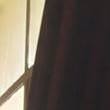Hostile witness
 sachin agrawal
(Querist) 03 March 2012
This query is : Resolved
sachin agrawal
(Querist) 03 March 2012
This query is : Resolved
i m a defence lawyer i want to know about a crediability of hostile witness that verson which he says after declaring him hostile in his cross examination by prosecutor i mean when prosecuter put suggestion and hostile witness gives reply in affirmative sense .to what extent answers given in leading question can be used against accused.i again mmean to say that a witness who in chief examination says nothing but in crossi=examination he says yes in all the suggestion. hopefullly i want reply with citation if any.
 Sudhir Kumar, Advocate
(Expert) 04 March 2012
Sudhir Kumar, Advocate
(Expert) 04 March 2012
tHIS IS SUCCESSFUL CROSS-EXAMINATION. yOU STILLHAVE RIGHT TO CROSS.
 s.subramanian
(Expert) 04 March 2012
s.subramanian
(Expert) 04 March 2012
From what you say, the hostile witness has supported the case of the prosecution during cross examination. Then you can take a strong stand that his evidence as a whole should be kept away from consideration for the reason that he has neither supported the case of the prosecution nor the defence and as such the same is absolutely useless.

Guest
(Expert) 04 March 2012
Dear Sachin,
When you say the witness was declared hostile by prosecution that means he was originally a prosecution witness. Whatever he says during cross-examination after his declaration, as hostile, the prosecution can take advantage of every bit of the evidence of the hostile witness to its own advantage to prove the offence of the accused. His evidence cannot be set aside, except by scuttling down the negative evidence by the defence side, as the witness is deemed to have sided the defence and by virtue of which the defence is not supposed to cross-examine him.
However, declaration of the witness as hostile by prosecution, itself is not sufficient. That depends upon the judge to allow or not to him to be declared as hostile, where the defence should not lose the opportunity to put forth strong objection to his declaration as hostile by giving some sound plea, as the witness is brought forward only by the prosecution that would have happened only after proper investigation. Once defence fails in his bid not to get him declared hostile, no remedy remains for the defence, as after cross-examination of hostile witness by the prosecution, the defence loses the chance to cross-examine a hostile witness
 Adv.R.P.Chugh
(Expert) 04 March 2012
Adv.R.P.Chugh
(Expert) 04 March 2012
The fact that witness has been cross examined by the prosecution as hostile - would not wash his evidence off the record, and the credible parts of his testimony can still be used by the defence and prosecution, court will seperate the chaff from the grain (falsus in uno falsus in omnibus) is not applicable in India.
Refer : Sat Paul v. Delhi Administration (1976) & Section 154(3)
 Shonee Kapoor
(Expert) 04 March 2012
Shonee Kapoor
(Expert) 04 March 2012
The evidence would much remain on the record. It is now a crafty cross from your side only which can control the damage done to the case.
Regards,
Shonee Kapoor
harassed.by.498a@gmail.com
 Nadeem Qureshi
(Expert) 04 March 2012
Nadeem Qureshi
(Expert) 04 March 2012
Dear Sachin
Mr. Dhingra expalin very well
 venkatesh Rao
(Expert) 04 March 2012
venkatesh Rao
(Expert) 04 March 2012
I agree every bit of reply by Mr. Dhingra except the fact in the last sentence that the defence loses his chance to cross examine a hostile witness. This is not correct. Of course, the valuable right of cross examination always protected by law cannot be taken away at any stretch of imagination. The defence can cross examine as if the witness has supported the case of prosecution. Just because a witness has been treated (and not turned) hostile and supported the prosecution later on, his testimony cannot be discarded altoghether.

Guest
(Expert) 04 March 2012
Dear Venkatesh,
You have every right to differ with my opinion. But, the fact is that once a witness is declared as hostile the person is treated as a witness of the opposite side thereby losing a scope to cross-examine him irrespective of whether he might not have switched over from his heart to the other side and may be just to tell a truth. That is why I have stated that the opposite party should put forth a strong objection to the treatment of the witness as a hostile one, so that the opposite party may retain his right to cross-examine him in addition to the favourable points already included in the evidence.
Even if the witness has been declared as hostile the opposite party has every right to get confirmed or alter his version to his favour by re-examination on the points he has been crossed by the party getting him declared hostile.
So, all that depends upon the art of examination/ re-examination of the witness.
PLEASE DO NOT FORGET, IF THE ADVOCATE IS QUITE PERFECT TO EXTRACT TRUTH, HE CAN GET THE TRUTH OUT OF THE WITNESS EVEN THROUGH EXAMINATION OR RE-EXAMINATION, NOT DEPENDING SOLELY ON CROSS-EXAMINATION.
 prabhakar singh
(Expert) 04 March 2012
prabhakar singh
(Expert) 04 March 2012
Let us first consider the meaning of the term “Hostile” because in the Indian Evidence Act 1872 nowhere 'hostile' term is used nor is described in respect of hostility.
Hostile means adverse, unfavorable or alien. These words have been borrowed from the British Law. In a criminal trial when a prosecution witness is summoned to produce evidence he appears before the court but does not confirm his previous evidence / statement recorded or collected by the investigative agency. He is called adverse witness or a hostile witness.
In the case of Sat Pal v Delhi Administration,the Supreme Court described hostile witnesses and laid that to steer clear controversy over the meaning of hostile witnesses which had given rise to difficulty and conflict of opinions.
The Supreme court in Gura Singh v State of Rajasthan, tried to define hostile witness and laid down that under the common law the hostile witness is described as one who is not desirous of telling the truth at the instance of one party calling him and an unfavourable witness is one called by a party to prove a particular fact in issue or relevant to the issue who fails to prove such facts or proves the opposite test.
Three principles of criminal jurisprudence which are well settled are as under:
(i) that the onus ties affirmatively on the prosecution to prove its case beyond reasonable doubt and it cannot derive any benefit from weakness or falsity of the defence version while proving its case;
(ii) that in a criminal trial the accused must be presumed to be innocent until he is proved to be guilty; and
(iii) that the onus of the prosecution never shifts.
Under section 105 of the Evidence Act the onus of proving exceptions mentioned in the Indian Penal Code lies on the accused but the said section does not at all indicate the nature and the standard of proof required. It is sufficient if the, accused is able to prove his case by the standard of preponderance of probabilities as envisaged by section 5 of the Evidence Act.
The accused succeeds if the probability of his version throws doubt on the presecution case. He need not prove his case to the hilt. It is sufficient for the defence to give a version which competes in probability with the prosecution version for that would be sufficient to throw suspicion on the prosecution case entailing its rejection by the court.
In a criminal trial it is not at all obligatory on the accused to produce evidence in support of his defence and for the purpose of proving his version he can rely on the admissions made by prosecution witnesses or on the documents filed by the prosecution.
Section 154 of the Evidence Act confers. a discretion on the court to permit a witness to be cross examined by a party calling him. The section confers a judicial discretion and must be exercised judiciously and properly in the interest of justice. The court will not normally allow a party to cross examine his own witness and declare the same hostile unless the court is Satisfied that the statement of the witness exhibits an element of hostility. or that he has resiled from a material statement which he made before an earlier authority.
Merely because a witness in an unguarded moment speaks the truth which may not suit the prosecution or which may be favourable to the accused, the discretion to allow the party concerned to cross examine his own witnesses cannot be allowed. The contingency of permitting the cross-examination of the witness by the party calling him is an extra ordinary phenomenon and permission should be given only in special cases.
But merely because a witness is declared hostile it does not make him unreliable so as to exclude his evidence from consideration altogether.
 prabhakar singh
(Expert) 04 March 2012
prabhakar singh
(Expert) 04 March 2012
Supreme Court of India
Gura Singh vs The State Of Rajasthan on 6 December, 2000
Author: Sethi
Bench: K.T.Thomas, R.P.Sethi
CASE NO.:
Appeal (crl.) 1184 1998
PETITIONER:
GURA SINGH
Vs.
RESPONDENT:
THE STATE OF RAJASTHAN
DATE OF JUDGMENT: 06/12/2000
http://www.indiankanoon.org/doc/928028/
 Raj Kumar Makkad
(Expert) 04 March 2012
Raj Kumar Makkad
(Expert) 04 March 2012
I have been left with no room to enter in especially when the replies are being supported with the relevant case laws.
 Ajay Bansal
(Expert) 05 March 2012
Ajay Bansal
(Expert) 05 March 2012
As per more then hundred latest judgemets of Supreme Court of India,the evidence of an hostile witness is to be considered to that extent,which goes in favoue of prosecution.
 sachin agrawal
(Querist) 03 March 2012
This query is : Resolved
sachin agrawal
(Querist) 03 March 2012
This query is : Resolved
 Guest
(Expert) 04 March 2012
Guest
(Expert) 04 March 2012
 Guest
(Expert) 04 March 2012
Guest
(Expert) 04 March 2012
